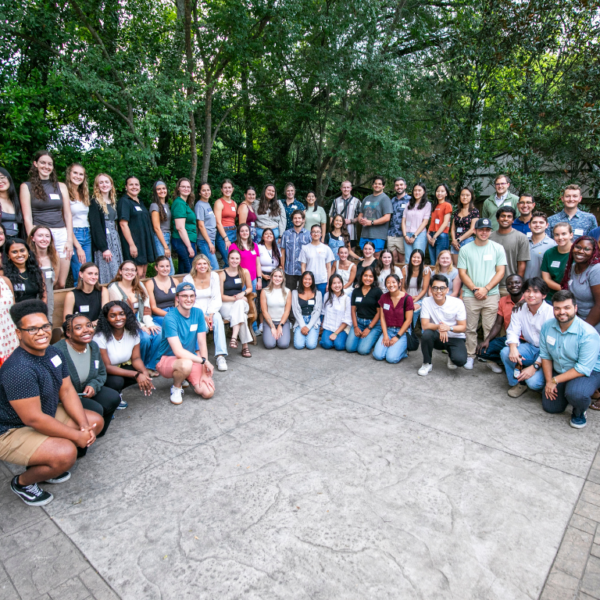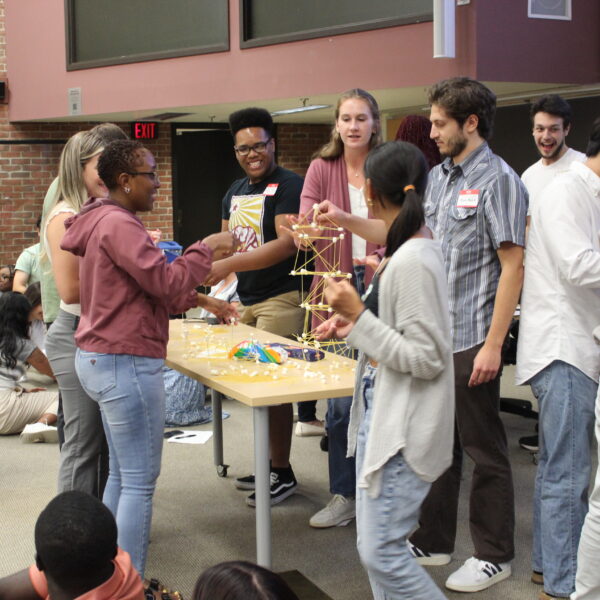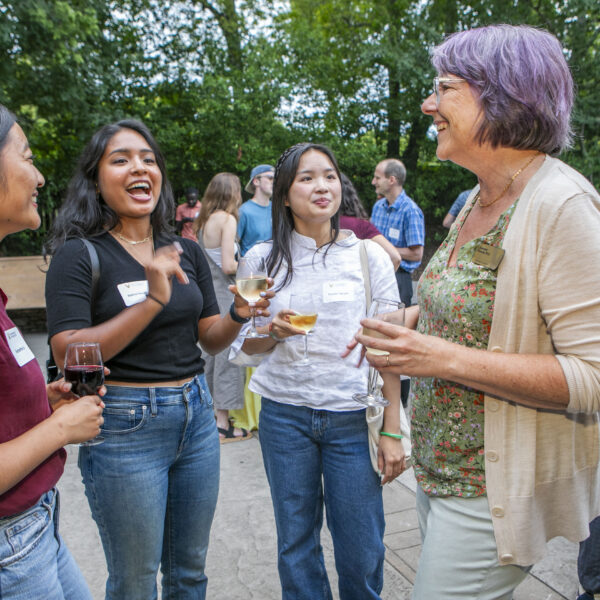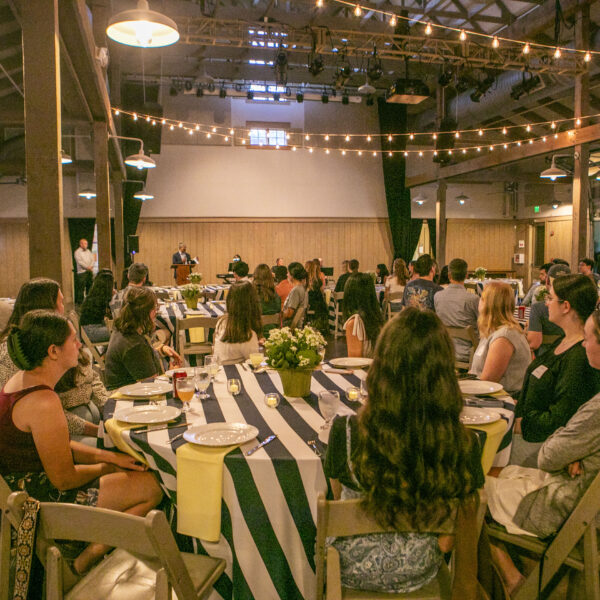 The Vanderbilt University Office of Biomedical Research Education and Training kicked off its week-long orientation for incoming Interdisciplinary Graduate Program and Quantitative and Chemical Biology Program graduate students on Aug. 12 with a comprehensive agenda that emphasized curriculum details and prepared students for their unique academic journeys. Sessions related to student well-being and support, international connections, and more. To cap off the introduction to the academic and social life at Vanderbilt, the dean of the School of Medicine Basic Sciences, John Kuriyan, also hosted a picnic for the incoming students at the Loveless Café, a Nashville staple.
The Vanderbilt University Office of Biomedical Research Education and Training kicked off its week-long orientation for incoming Interdisciplinary Graduate Program and Quantitative and Chemical Biology Program graduate students on Aug. 12 with a comprehensive agenda that emphasized curriculum details and prepared students for their unique academic journeys. Sessions related to student well-being and support, international connections, and more. To cap off the introduction to the academic and social life at Vanderbilt, the dean of the School of Medicine Basic Sciences, John Kuriyan, also hosted a picnic for the incoming students at the Loveless Café, a Nashville staple.
Orientation began with a warm welcome and introductions by faculty members, including Senior Associate Dean of Biomedical Research Education and Training Walter Chazin, Director of the IGP Barbara Fingleton, and others who outlined the expectations for the new cohort.
“We are highly enthusiastic about the class of nearly 100 new students in our IGP and QCB umbrella programs,” Chazin said. “The week of orientation activities is the very first step on their exciting journey of Ph.D. training. It gives them insight into all the Vanderbilt School of Medicine has to offer, from the wide range of biomedical research programs to the many resources available through BRET to assist them in developing their soft skills and planning for their future careers.”
The week’s sessions covered student wellness and support, advice from a panel of graduate students, use of animals in scientific research, CliftonStrengths, financial wellness, responsible conduct of research, and more.
 The CliftonStrengths session, hosted by Kate Stuart, associate director of the ASPIRE program office of career development, was of particular interest to the students. Students determined their top characteristics according to the CliftonStrengths online assessment, an activity that will help them understand their strengths and weaknesses and how they can leverage them in situations throughout their graduate career and beyond. Stuart then had the trainees apply their top character strengths in a fun, collaborative activity in which student groups were tasked with building the tallest structure out of marshmallows and uncooked spaghetti.
The CliftonStrengths session, hosted by Kate Stuart, associate director of the ASPIRE program office of career development, was of particular interest to the students. Students determined their top characteristics according to the CliftonStrengths online assessment, an activity that will help them understand their strengths and weaknesses and how they can leverage them in situations throughout their graduate career and beyond. Stuart then had the trainees apply their top character strengths in a fun, collaborative activity in which student groups were tasked with building the tallest structure out of marshmallows and uncooked spaghetti.
Optional activities included a workshop on applying for the National Science Foundation Graduate Research Fellowship Program, an international student meet-and-greet, and more.
The IGP and QCB students also attended two meet-and-greet poster sessions that offered them a unique chance to interact with faculty and their lab members. Not only were students able to discuss research projects and interests with faculty, but they also were able to get a sense of whose lab they would like to train in.

A clear highlight of the week-long orientation was the dean’s picnic at the Loveless Café. This event is a long-held tradition in which the dean of Basic Sciences hosts a dinner for the incoming trainees so they have an opportunity to mingle and connect with current faculty and get to know their peers, relax, and enjoy good food.

While addressing attendees at the picnic, Kuriyan had some advice for the new graduate students: “The path ahead may not always be smooth, but my colleagues and I are here to help you and support you every part of the way,” he said. “The friendships that you make [here], whether or not you stay in academic science or go to industry or choose some other career, will support you as you go forward.”
Equipped with information and Kuriyan’s encouraging words, these graduate students are ready to advance biomedical research and ready to make their mark on our Basic Sciences community.